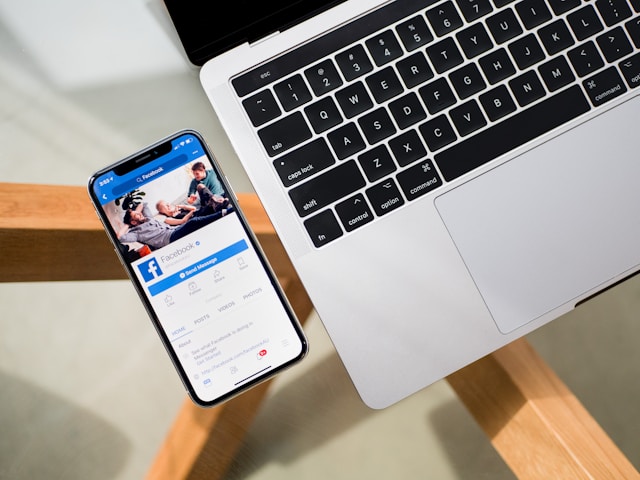In an age where our lives are increasingly intertwined with digital platforms, social media has become a significant part of daily routines. It connects people across the globe, offers endless streams of entertainment, and provides access to information in real time. However, constant social media use also brings negative consequences, including stress, anxiety, and information overload. In recent years, more people are choosing to take a social media detox—a temporary break from platforms like Instagram, Facebook, Twitter, and TikTok.
This article explores the growing trend of social media detoxes and examines how disconnecting from these platforms can positively affect mental health and overall well-being.
What is a Social Media Detox?
A social media detox is a conscious decision to take a break from social media platforms for a certain period of time, ranging from a few days to several months. The goal is to reduce dependence on social media, reclaim time spent online, and reconnect with the real world. While it may seem challenging in a world so connected to digital interaction, the benefits of a social media detox can be profound.
The Psychological Impact of Social Media
Before diving into the benefits of a detox, it’s essential to understand how constant social media use affects the mind. Research has shown that excessive social media use can have the following negative impacts:
- Comparison and Low Self-Esteem Social media often presents an unrealistic, highly filtered view of others’ lives. This can lead to constant comparison, fostering feelings of inadequacy and low self-worth. Seeing curated versions of others’ happiness or success may cause individuals to believe they are not achieving enough in their own lives.
- Fear of Missing Out (FOMO) FOMO is a well-documented psychological phenomenon linked to social media use. As users see others attending events, going on vacations, or simply having fun, they can develop anxiety about missing out on exciting experiences, leading to stress and dissatisfaction.
- Information Overload and Anxiety Constant exposure to news, opinions, and updates on social media can create a sense of information overload. With platforms designed to keep users scrolling endlessly, it becomes difficult to unplug, leading to heightened anxiety levels as the brain struggles to process and react to the barrage of information.
- Disrupted Sleep Patterns Studies show that excessive screen time, particularly before bed, can disrupt sleep patterns by overstimulating the brain and reducing melatonin production. Poor sleep is linked to numerous mental health issues, including depression and anxiety.
The Benefits of a Social Media Detox
- Improved Mental Clarity and Focus One of the most noticeable benefits of taking a social media detox is improved mental clarity. Without the constant distractions and notifications from social media, individuals often find it easier to focus on tasks, be more productive, and stay present in the moment. This break allows the brain to recharge and reduces mental fatigue.
- Increased Self-Esteem and Confidence By stepping away from the comparison culture that often dominates social media platforms, individuals can regain a sense of self-worth. A detox encourages self-reflection and self-appreciation without the pressure of comparing oneself to the highlight reels of others’ lives. As a result, many people report feeling more confident and satisfied with their lives after a social media break.
- Reduced Anxiety and Stress A social media detox can significantly lower levels of anxiety and stress. Without the pressure to constantly check for updates or respond to notifications, individuals feel a sense of relief. Taking a break also reduces exposure to the negative news cycle and online conflicts, allowing individuals to relax and focus on more positive, meaningful experiences.
- Better Sleep Quality Without the temptation to scroll late into the night, people who take a social media detox often experience improved sleep quality. A reduction in screen time, particularly before bed, helps to regulate the body’s natural sleep-wake cycle, leading to better rest and improved overall health.
- Enhanced Real-Life Connections Social media can often serve as a substitute for real-life interactions. By stepping away from digital platforms, individuals are more likely to engage in meaningful face-to-face conversations and spend quality time with friends and family. This strengthens real-life relationships and creates a deeper sense of connection.
- Rediscovery of Time One of the most surprising benefits of a social media detox is realizing just how much time is spent scrolling through platforms. Without the distraction of social media, individuals can rediscover hobbies, pursue creative interests, exercise, and spend time on personal development. This newfound time can lead to a greater sense of fulfillment and accomplishment.
Tips for a Successful Social Media Detox
Taking a social media detox can be challenging, especially if you’re accustomed to checking your accounts frequently. Here are some tips to help you succeed:
- Set Clear Goals Define why you want to take a social media detox. Whether it’s to reduce anxiety, improve productivity, or focus on real-life relationships, having clear goals will help keep you motivated.
- Start Small You don’t need to quit social media cold turkey. Start by reducing the time you spend on platforms each day, or take short breaks, like weekends or specific hours during the day.
- Remove Apps from Your Phone Deleting social media apps from your phone removes the temptation to check them throughout the day. You can still access them if necessary but adding an extra step to the process will make it less of a habit.
- Replace Social Media with Other Activities Fill the time you would have spent on social media with fulfilling activities like reading, exercising, or learning a new skill. This will help you maintain focus on the positive benefits of the detox.
- Inform Friends and Family Let your friends and family know that you’re taking a social media break. This helps prevent misunderstandings and ensures you still stay connected through other means, like phone calls or in-person visits.






